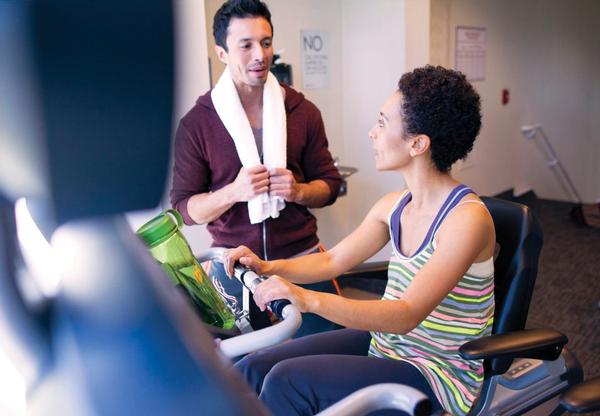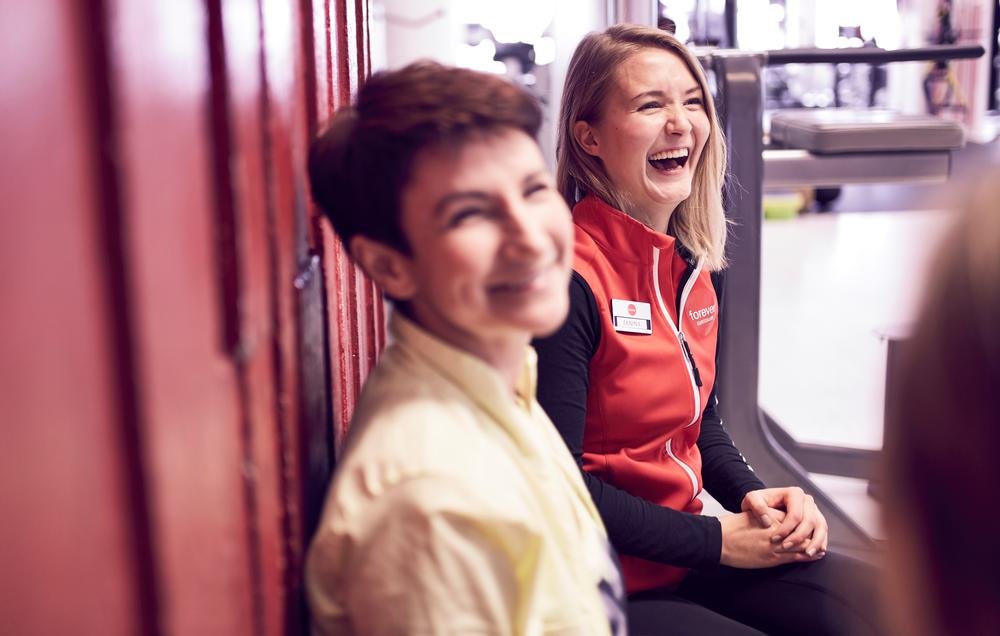Fewer hospital visits, less absenteeism and lower healthcare costs have been some of the benefits of a health care policy from US company, Humana, which encourages policy holders to be more active. Launched in 2011, the company’s Go365 scheme rewards policy holders with retail vouchers, movie tickets and discounts on fitness gear when they complete healthy activities.
Activity trackers are used to monitor steps, while other healthy activities, such as preventative screenings and online educational assessments, are also rewarded.
Points accumulated define a member’s status in the programme - blue, bronze, silver, gold and platinum. The more members who engage in Go365, the more points they can earn to redeem against rewards.
Initially, Humana ran a three-year pilot programme for its own employees, which reduced healthcare costs by 10 per cent. Since the programme has been made available for businesses to buy for their employees, it has signed up more than five million members.
“Wellness programmes work when they are personalised, measurable and incentivised,” says Mike Clarke, enterprise partnership leader at Humana. “This programme was set up as part of Humana’s consumer-focused strategy, which integrates health, wellness and lifelong wellbeing as its platform for future growth.”
Focus on wellness
UK company, Vitality, is taking a similar approach with its incentive-led schemes for private medical insurance and life insurance policies. Customers signing up to Vitality Health and Vitality Life can earn points for healthy behaviour, such as walking, running, cycling, swimming (with a linked activity tracking device), working out at the gym, or running a Parkrun.
“Our approach is all about focusing on wellness and prevention, rather than sickness,” says Neville Koopowitz, chief executive of Vitality.
“It’s a unique approach to insurance, based on the scientifically proven principles of behavioural economics. Vitality helps members take a more active role in managing their wellness, which can encourage the development of healthy long-term habits.”
Earning rewards for fitness
Undertaking 12,500 steps a day equates to eight Vitality points. A gym session earns nine points: enough for a free drink from Starbucks, or a cinema pass for everyone on the policy.
Customers have to earn 12 Vitality points in a week to redeem rewards with the scheme’s many partners, which include British Airways and Ocado. The maximum number of points that can be earned in a day is eight and 40 in a week.
Vitality also works with a number of health and fitness companies, offering deals to help members increase their daily activity – including 50 per cent off gym memberships at Virgin Active, David Lloyd Leisure and Nuffield Health, Fitness & Wellbeing. Customers can also get 50 per cent off a pair of running shoes at Sweatshop, up to 50 per cent cashback on bikes from Evans Cycles and up to 40 per cent off a number of exercise tracking devices, including Garmin, Polar and Nokia.
Appealing to younger people
Koopowitz says these policies have been a useful tool in broadening the appeal of the products beyond traditional customer segments. “By offering benefits like free Starbucks, Apple Watches and cinema tickets, which appeal to younger, healthier customers, Vitality aims to bring new customers into the market who may not have considered health or life insurance,” he says. “By changing behaviour, we produce economic and health benefits that are good for members, for us and for society.”
Insurance expert, Emma Thomson, head of customer care at LifeSearch, says these types of policies are great for consumers because they offer a tangible benefit to a policy that no one ever wants to claim on.
“Vitality is head and shoulders above the rest with the rewards and benefits it offers, but other companies are starting to follow suit,” she says. “Aviva is now offering gym discounts to group business and British Friendly’s Mutual Benefits Programme provides health-related discounts and benefits to individuals.”
Thomson says that while these consumer-friendly policies are a growing trend, she is doubtful all insurers will follow suit, because there are some downsides: “The benefits add to the cost of the policy and insurers don’t want to price themselves out of the market,” she says. “Added to this they can be complex to set up.”
She adds that not all consumers want to engage and those who live out of range of a gym are not able to reap the benefits, but will still have to pay the same premium, so they need to be set up with a mix of gym and walking.
However, there are certainly growing levels of activity among insurers looking to reward healthy behaviour. Aviva’s Healthier Solution private medical insurance policy allows holders to earn discounts on their payments. When they take out their policy, they complete an online health questionnaire which gives them a ‘Q score’, showing how healthy they are compared to 100 people of the same age, race and gender.
Health programmes
A 12-week health programme is then recommended, which can range from increasing physical activity to quitting smoking. Those who improve on their Q score can receive up to 15 per cent discount on their insurance renewal premium.
British Friendly’s Mutual Benefits programme provides members with access to services and products that will help them better understand, engage with and improve their health and wellbeing, in order to live life to the full, and discounted gym membership could be the next step.
“We’re constantly looking for ways to refine and improve the benefits we offer to best suit our 24,000-plus members and a benefit that members have expressed a strong desire for is access to discounted gym membership, so this is certainly something we’ll be seriously investigating,” says Nick Telfer, product and marketing director at British Friendly.
As the appeal and success of the policies depend on the variety of activities that people can engage with and the rewards they earn, there are opportunities for fitness operators to work with insurance companies.
Also, these companies constantly monitor the programmes’ success, which could bring valuable data for our industry and ultimately lead to closer work with the healthcare sector.


























































